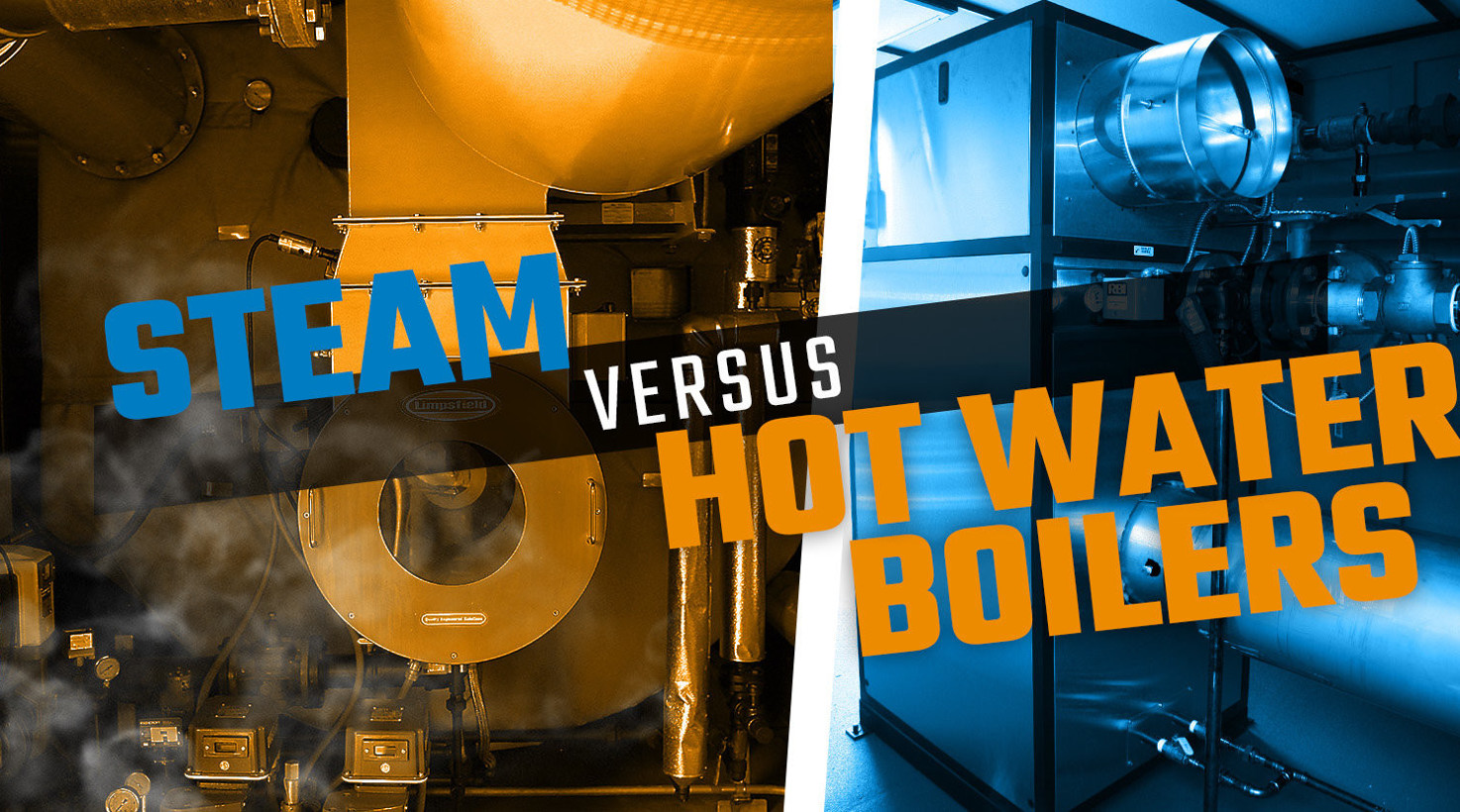A boiler’s a boiler, right? Yes, and no. While every boiler does what its name implies (boil water), what they do with that water determines whether or not you’re dealing with a steam boiler or a hot water boiler. While each one operates on the same basic principle of transferring heat to water, the end result is different.
BOILING
At their core, water and steam boilers perform the same task. They burn fuel (usually propane, natural gas, or fuel oil) to make heat, then transfer that heat to a large volume of water. However, it’s what happens next that distinguishes the two types from each other. In a hot water boiler, once the water is boiling, it’s ready to go to work. In a steam boiler, though, that water is only there to make steam. It’s the actual steam that is used to perform the required work.
STEAM BOILERS
A steam boiler is what most people think of when they hear the word “boiler”. Its purpose is to make steam, which in turn travels to end work processes to get stuff done. You’ll find them all around the world in a wide range of applications, from moving pistons in factories to sterilizing equipment in hospitals to heating chemicals for mixing compounds. Unlike water boilers, steam boilers have a steam head and manifold drum, which is located above the pressure vessel and is used to collect the steam created by the boiler.
Because their effectiveness and efficiency rely on the amount of steam they can produce, steam boilers will often have auxiliary equipment installed to help reclaim heat from the steam cycle that can be put back into use heating additional water.
WATER BOILERS
Water boilers aren’t used to make steam, so they don’t have any additional equipment to capture and route steam. Instead, they have equipment in place to route the heated water from the pressure vessel to end work processes. Since hot water isn’t capable of performing the same work as steam, the end work processes tend to be different, and more for domestic or hydronic heating purposes than the roles steam would perform.
While hot water boilers can be used to supply some small industrial processes, that’s not where they really shine. Instead, you’ll find them used for comfort processes, such as heating a home, small business, or building heat. They’re also used to supply heated floors, which are often simply concrete floors with water lines running through them that radiate heat up through the concrete to the occupants of the room.
OTHER DIFFERENCES
There are several other differences between hot water boilers and steam boilers that don’t always have to do with the end work process, but rather with the way they operate. For example, the way work processes are supplied. Steam boilers rely on steam pressure to keep their end work processes supplied. Hot water boilers, on the other hand, don’t have all that pressure to handle the movement. That’s why hot water boilers will have pumps installed to move the hot water where it needs to go.
Since hot water boilers don’t have to put in enough heat for the water to change phase from water to steam, they tend to use less energy and operate with greater efficiency than steam boilers, as well. This also means hot water boilers tend to be cheaper to operate than steam boilers. Hot water boilers also tend to be simpler than steam boilers in their design and construction, which makes them less expensive to rent and purchase. The difference in complexity also means that hot water boilers tend to require less maintenance and service to keep them running.
Whatever kind of boiler you need, the experts at WARE are standing by to help. We have new and rental boilers available, backed by more than 70 years of expertise. We also have highly trained technicians who are standing by to help with service and maintenance. If you have an existing boiler, WARE can help you keep it running with parts and supplies from BoilerWAREhouse, the largest online boiler parts site out there. If you’d like to learn more about the boiler you have, we can help with that, too. Our WARE Boiler University offers online and in-person training taught by industry experts who know the ins and outs of operating every kind of boiler. Whatever you need, WARE is always here to help.
